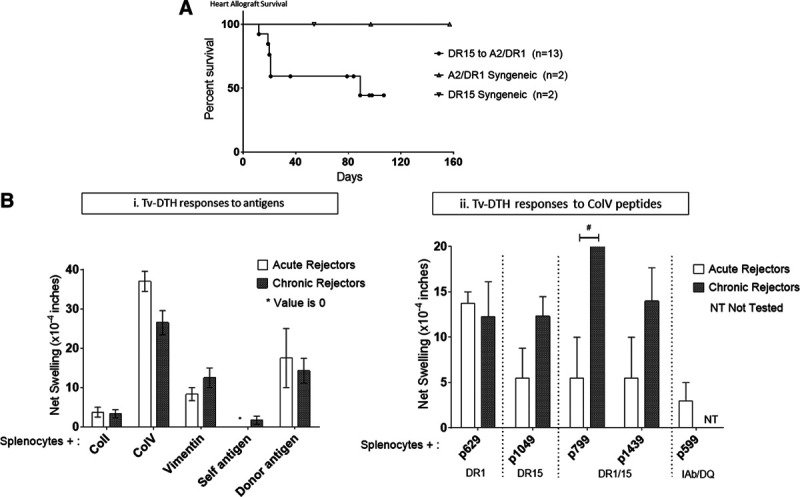FIGURE 3.

HLA−DR15 (donor)−restricted immune responses develop in transgenic mice with chronically rejecting, but not acutely rejecting, DR−transgenic murine cardiac grafts. A, Naïve HLA A2/DR1 transgenic mice received heterotopic cardiac transplants from HLA−DR15 transgenic donors. Two mice whose grafts were still beating, at a very low score, were sacrificed at day 19 and day 36 post-transplant, and 1 graft survived to day 89. All others survived long term, with evidence of chronic rejection. All 4 syngeneic grafts were accepted and survived long term. B(i), A2/DR1 recipients of the DR15 heart grafts were tested for reactivity to various antigens of interest. During both acute (5/13) and chronic rejection (6/13), all recipients developed Tv−DTH responses to ColV, with low responses seen toward vimentin and donor antigen. (ii) Mice that rejected the grafts acutely (<25 d) developed immune responses to the DR1−binding peptide p629 but not to the DR15 epitope p1049. However those rejecting chronically responded to the donor DR15–restricted peptide p1049, as well as the DR1/15 cross-reactive peptides p799 and p1439 (*Unpaired t−tests P < 0.05). Tv−DTH, trans-vivo delayed type hypersensitivity.
